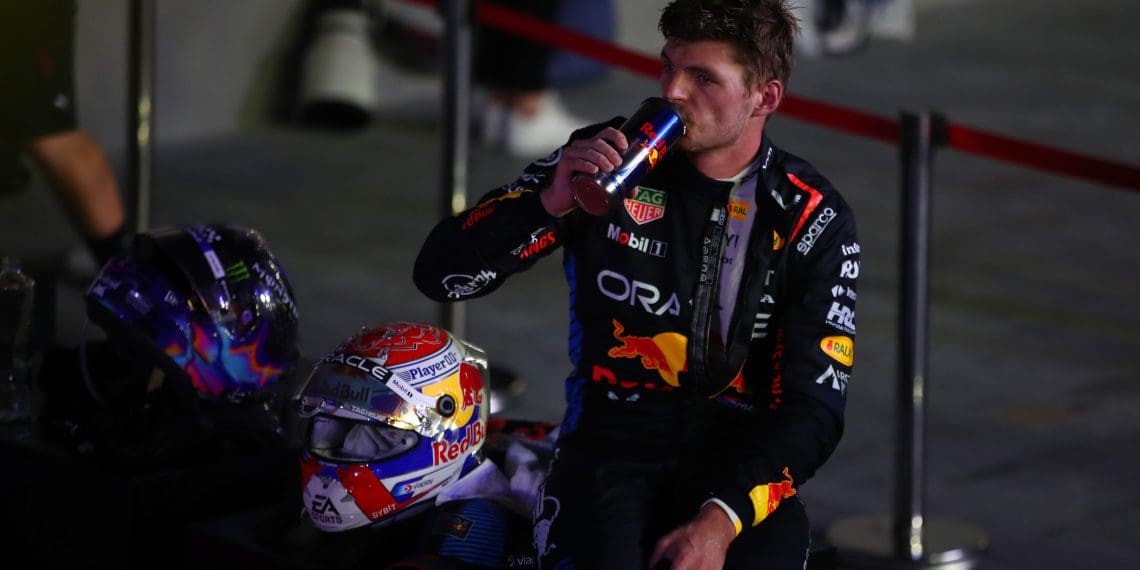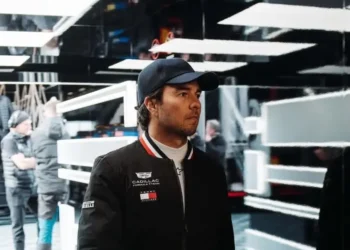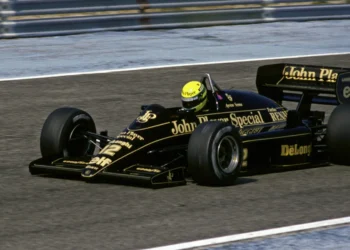The latest spat between reigning Formula 1 world champion Max Verstappen and the FIA has taken an unexpected turn, as the governing body’s strict stance on swearing led to a high-profile clash at the Singapore Grand Prix. Verstappen was hit with what amounted to community service for using foul language in a pre-event press conference, prompting the Dutch driver to minimize his participation in post-qualifying and post-race conferences as a form of protest.
Instead, Verstappen opted for impromptu private media sessions, making it clear that his issue was specifically with the FIA and its president, Mohammed Ben Sulayem, whose swearing clampdown had already drawn widespread criticism. The fallout has raised questions about whether the FIA has needlessly escalated the situation and whether Verstappen’s protest is justified.
FIA’s Heavy-Handed Approach: An Own Goal?
Motorsport analysts Edd Straw, Scott Mitchell-Malm, and Glenn Freeman recently discussed the controversy on a YouTube video, with a shared consensus that the FIA and Ben Sulayem have handled the situation poorly.
“I don’t mind the FIA having a position of, ‘Please don’t swear in all our press conferences’,” Freeman explained. “But the way you handle it is you have a word with people and say, ‘Look, when you’re in this environment, that’s our environment, please can you just watch your language.’ Talk to these people like adults and they will act like adults in response.”
The analysts criticized the FIA’s decision to take a punitive approach rather than engaging with drivers directly. Straw argued that the FIA’s aggressive stance has backfired, painting Verstappen as the reasonable party and making the FIA look overly harsh.
“Ben Sulayem has basically gone on the offense… He ends up looking disproportionate, and Verstappen ends up looking like the voice of reason,” Straw said. “If you want to keep language clean in the FIA press conferences, that’s not remotely unreasonable. But by going so heavy-handed, Ben Sulayem has made himself and the FIA look rather petty on this one. That is losing because it just makes the FIA look stupid.”
Verstappen’s Protest: A Calculated Move
Verstappen’s response to the FIA’s actions has been measured, with the Dutchman choosing not to refuse media obligations entirely but instead limiting his appearances at FIA-mandated press conferences. Mitchell-Malm noted that Verstappen’s approach has been carefully crafted to highlight his discontent without alienating fans or the media.
“You have to applaud Verstappen for the way he made it very clear where his metaphorical middle finger was pointed,” Mitchell-Malm said. The discussion underscored that while Verstappen’s actions may appear minor, they carry significant weight in the ongoing power struggle between the driver and the FIA.
Swearing and Team Radios: A Battle the FIA Can’t Win
The FIA’s clampdown on swearing extends beyond press conferences, with Ben Sulayem suggesting limits on the broadcasting of swearing over team radio. This has sparked further backlash, as Straw and Freeman pointed out the futility of policing drivers’ language during high-stress moments on track.
“They’re athletes, they’re competing, the heart rates are 150bpm, 160bpm, 170bpm,” Straw said. “If something goes wrong and they’re annoyed, they’re going to say things in the heat of the moment. It’s absurd to try to police that.”
Freeman added that even if the FIA manages to enforce limits on language, they are unlikely to win the broader battle with Formula 1’s commercial arm, which values the raw and unfiltered radio communications for their entertainment value. “F1 aren’t going to stop using these brilliantly lairy radio messages with the words bleeped out for the main broadcast. It’s good content, it’s not going away,” Freeman said.
Verstappen’s Future: Frustrations and Uncertainty
Verstappen’s standoff with the FIA feeds into broader frustrations that have led him to question his long-term future in F1. The Dutchman has been vocal about his discontent with the growing calendar, the number of street tracks, and what he views as excessive PR and media obligations. His latest comments suggest that the FIA’s approach to the swearing clampdown is yet another factor pushing him toward reconsidering his commitment to the sport.
“I understand why it sounds a bit petty when Verstappen is seen to have said he might leave F1 over this swearing row,” Mitchell-Malm said. “But what he’s saying is this feeds into wider frustrations where he ends up thinking: actually, is this worth it?”
A Battle the FIA Can’t Afford to Lose
Straw compared Verstappen’s position to that of Ayrton Senna, who famously wielded his influence against the governing body in the late 1980s and early 1990s. Like Senna, Verstappen has significant power as one of the sport’s leading figures, and his willingness to push back against the FIA puts the governing body in a difficult position.
“Verstappen has a huge amount of power in this because if one of F1’s all-time greats is willing to walk away… then that reflects very badly on F1,” Straw said. “The FIA and Ben Sulayem may have the regulatory power, but Max Verstappen has the real power.”
Ultimately, the consensus among the analysts was clear: the FIA’s aggressive stance against Verstappen and the broader swearing issue is not only unwinnable but also damaging to its reputation. If the governing body continues to pursue this path, it risks alienating one of its biggest stars and making itself look increasingly out of touch with the realities of modern motorsport.










